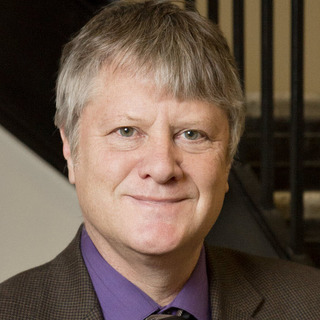These judges evaluated research paper submissions for GIJC 2013 in Rio de Janeiro, GIJC 2015 in Lillehammer, and GIJC 2017 in Johannesburg. Their final selections can be found here.
 Rosental Alves
Rosental Alves
University of Texas, Austin
Rosental Alves is the founder and director of the Knight Center for Journalism in the Americas. In 2007, the Knight Foundation pledged an additional $1.6 million over five years to allow the Knight Center to refocus its work as a digital media center for Latin American and Caribbean journalism and to expand its efforts to serve as an incubator for new journalism organizations.
Alves began his academic career in the United States in March 1996, after 27 years as a professional journalist, including seven years as a journalism professor in Brazil. He moved to Austin from Rio de Janeiro, where he was the managing editor and member of the board of directors of Jornal do Brasil, one of the most important Brazilian newspapers. Alves worked for that paper for 23 years.
Read more online

Ying Chan
Hong Kong University
Ying Chan is an editorial and media consultant, China expert, educator and journalist, and e-learning advocate.
She is the founding director and professor (1999-2016) of the Journalism and Media Studies Centre at The University of Hong Kong, and the founding dean (2003-2011) of the journalism school at Shantou University in China. Under her leadership, the JMSC became the hub of pan-Asian journalism serving to promoting journalism standards, freedom of expression and digital innovation.
Prior to joining HKU in 1998, Chan spent 23 years working as a journalist in New York City, where she reported for the New York Daily News, NBC News, and a number of Chinese language dailies. Chan’s honours include a Nieman Fellowship at Harvard University, a George Polk Award for journalistic excellence and an International Press Freedom Award by the Committee to Protect Journalists.
Chan is a board member of the Media Development Investment Fund and a member of the World Economic Forum Global Agenda Council on the Future of Media, Information & Entertainment. She has edited six books on China’s media as the founder and co-director (2004-2016) of the China Media Project. Chan is consulting editor of GIJN Chinese edition and Honorary Professor of the Technology-Enriched Learning Initiative at HKU.
Sheila Coronel
Columbia University
Sheila S. Coronel is academic dean of the Graduate School of Journalism at Columbia University.
She is concurrently also director of the Stabile Center for Investigative Journalism and Stabile professor of professional practice. She began her reporting career in the Philippines, and in 1989, cofounded the Philippine Center for Investigative Journalism to promote investigative reporting on major social issues, including the military, poverty, and corruption.
Coronel is the author and editor of more than a dozen books, including Coups, Cults & Cannibals, The Rule-makers: How the Wealthy and Well-Born Dominate Congress, and Pork and other Perks: Corruption and Governance in the Philippines.
 Steve Doig
Steve Doig
Arizona State University, Phoenix
Steve Doig is the Knight Chair in Journalism, specializing in computer-assisted reporting — the use of computers and social science techniques to help journalists do their jobs better.
Doig joined the Arizona State University faculty in 1996 after a 23-year career as a newspaper journalist, including 19 years at the Miami Herald. There, he served variously as research editor, pollster, science editor, columnist, federal courts reporter, state capital bureau chief, education reporter and aviation writer.
He currently teaches graduate courses in the Cronkite School’s professional master’s program, including the print reporting portion of the Journalism Skills (MCO 502) bootcamp as well as Media Research Methods (MCO 510). He also served two years as interim director of the Cronkite School. In 2010, he spent four months in Portugal as a Fulbright Distinguished Chair, teaching graduate students at the Universidade Nova de Lisboa and lecturing around the country. During the summers, he works with the Carnegie-Knight News21 initiative helping students do data-heavy investigative projects.
Read more online
 Anton Harber
Anton Harber
Wits University, Johannesburg
Anton Harber is Adjunct Professor of Journalism. His research interests include journalism; media; and history of South African media.
Harber is the Founding Editor of the Mail & Guardian newspaper (previously known as the Weekly Mail). Previously, he also worked as Sub-Editor for the Sunday Post and Sowetan newspapers and as Political Reporter for the Rand Daily Mail.
Between 1997 and 2001, Harber was the CEO of Kagiso Broadcasting and between 1998 and 2001, he was the Executive Director of Kagiso Media Ltd.
Harber has held a number of other positions such as Chair of the South African Conference of Editors (in 1991), Chair of the National Association of Broadcasters (in 1998) and Chair of the Freedom of Expression Institute (in 2010).
Harber also writes a regular column in Business Day and a blog at www.theharbinger.co.za
Read more online
 Brant Houston
Brant Houston
University of Illinois, Urbana
Professor Brant Houston holds the John S. and James L. Knight Foundation Chair in Investigative and Enterprise Reporting at the University of Illinois. Houston teaches investigative and advanced reporting in the Department of Journalism in the College of Media at Illinois.
Houston became the chair after serving for more than a decade as the executive director of Investigative Reporters and Editors (IRE), a 4,000-member organization, and as a professor at the University of Missouri School of Journalism. Before joining IRE, he was an award-winning investigative reporter at daily newspapers for 17 years.
Houston also is the author of three editions of the textbook, “Computer-Assisted Reporting: A Practical Guide,” and co-author of the fourth edition and fifth edition of “The Investigative Reporter’s Handbook.” Currently he is working on projects involving nonprofit journalism, ethnic media newsrooms, and new technologies for news-gathering.
Read more online
 Amy Schmitz Weiss
Amy Schmitz Weiss
San Diego State University
Amy Schmitz Weiss is an associate professor in the School of Journalism & Media Studies at San Diego State University. She received her Ph.D. from the University of Texas at Austin in 2008. In 2011, she was named a Dart Academic Fellow.
She is also the 2011-2012 Recipient of the AEJMC Bridge Grant with funding from the John S. and James L. Knight Foundation that led to the creation of a mobile news app, AzteCast for the San Diego State University campus population in spring 2012.
Dr. Schmitz Weiss is the founder and director of the Virtual Journalism Learning Center in Second Life, which is used to train journalism students and journalists on how to cover natural disasters and crisis situations. She also is a former journalist who has been involved in new media for more than a decade. She has worked in business development, marketing analysis and account management for several Chicago Internet media firms.
Read more online
